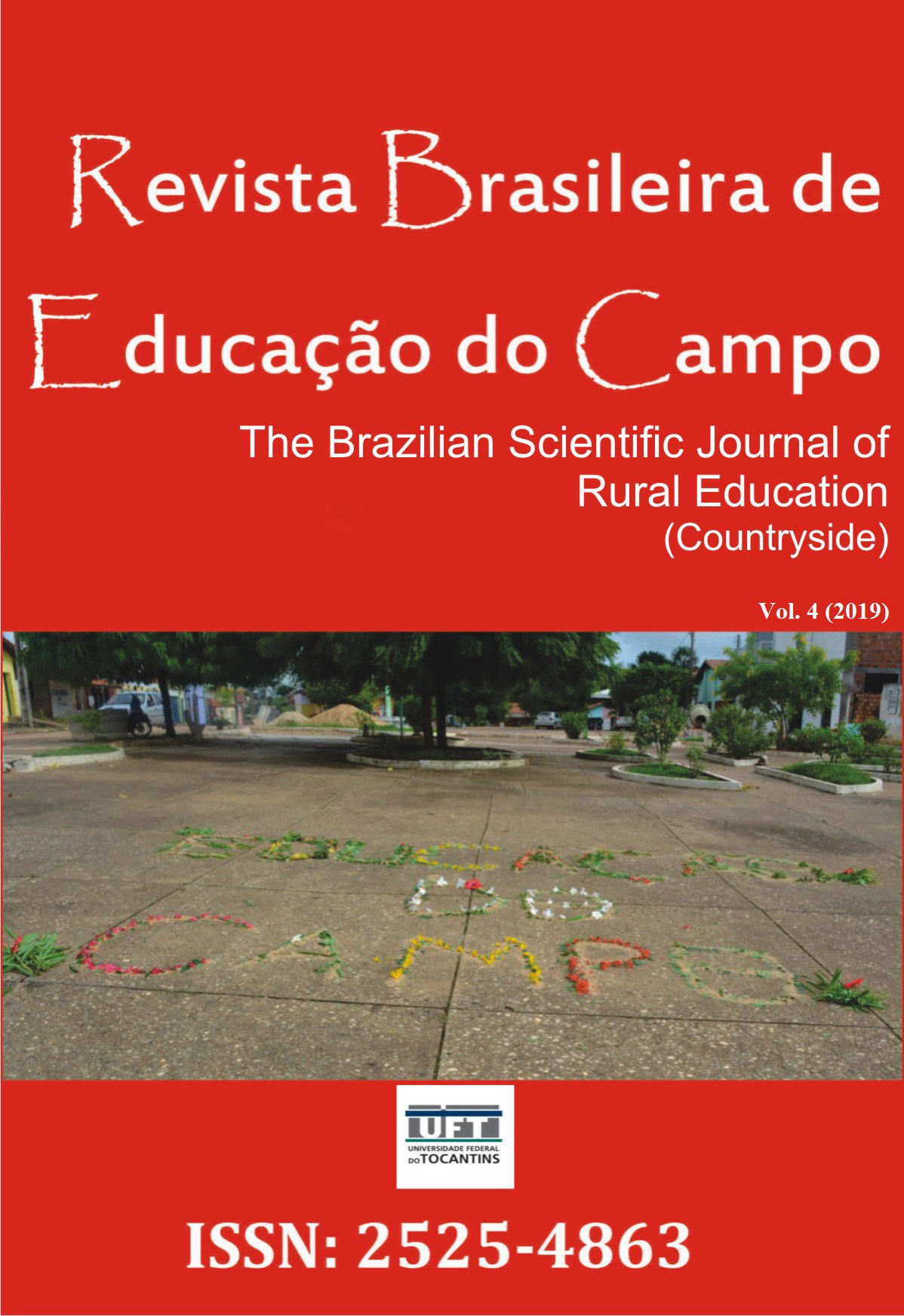Alternation Pedagogy in Espírito Santo State and the Agricultural Family School of São Bento do Chapéu
DOI:
https://doi.org/10.20873/uft.rbec.e7305Abstract
This article has as its general objective to discuss how the Agricultural Family School of São Bento do Chapéu conducts the training of the subjects that have passed through the institution throughout its existence and also which were the contributions to rural communities of the municipalities of Domingos Martins, Marechal Floriano and Santa Leopoldina municipalities. This is a qualitative research, and was characterized as a case study. Data collection was carried out through two sources: the first one focused on the historical rescue of the São Bento do Chapéu Agricultural Family School; the second one by the application of a structured questionnaire containing questions that were answered by the institution's former students. The research has as a theoretical foundation Nosella (2012), Freire (1996) and Begnami (2006), among others. The study highlighted that the perspective of the Alternance Pedagogy as an epistemological process and methodological organization promotes the approximation between the school and the families; it also articulates practical and theoretical knowledge of communities and of those that make up the school curriculum. These characteristics qualify and make learning more meaningful and students’ training more contextualized and effective.
Downloads
References
Begnami, J. B. (2006). Pedagogia da Alternância como sistema educativo. Revista da Formação por Alternância, 32, 4-47. Recuperado de: http://www.mepes.org.br/nosso-trabalho/efas
Brasil. Decreto nº 7.352, de 04 de novembro de 2010. Dispõe sobre a política de educação do campo e o Programa Nacional de Educação na Reforma Agrária - PRONERA. Brasília, 2010. Recuperado de: http://www.planalto.gov.br/ccivil_03/_ato2007-2010/2010/decreto/d7352.htm
Documento Curricular da Educação Básica – Uma produção coletiva dos sujeitos. (2016). Prefeitura Municipal de Domingos Martins.
Ferreira, A., Wisniewsky, J., Vargas, D., Guedes, A., & Bohner, T. (2014). Exemplo de educação do campo baseada nos princípios do enfoque agroecológico e na Pedagogia da Alternância. In IV Fórum Internacional de Pedagogia. Santa Maria, RS.
Freire, P. (1996). Pedagogia da Autonomia: saberes necessários à prática educativa. São Paulo, SP: Paz e Terra.
Freire, P. (2005). Pedagogia do Oprimido. Rio de Janeiro, RJ: Paz e Terra.
Freire, P., & Macedo, D. (1994). Alfabetização: leitura do mundo leitura da palavra. Rio de Janeiro, Paz e Terra.
Gil, A. (2002). Como elaborar um projeto de pesquisa. São Paulo, SP: Atlas.
Jesus, J. (2007). Saberes e Formação dos Professores na Pedagogia da Alternância (Dissertação de Mestrado). Universidade Federal do Espírito Santo, Vitória.
Molina, M. C., & Jesus, S. M. S. A. (Orgs.). (2004). Contribuições para a construção de um projeto de Educação do Campo. Brasília, DF: Articulação Nacional "Por Uma Educação do Campo. Coleção Por Uma Educação do Campo, nº5.
Nosella, P. (2012). Educação no campo: origens da pedagogia da alternância no Brasil. Vitória, ES: EDUFES.
Puig-Calvó, P. (2006). Los Centros de Formación por Alternancia: desarrol de las personas y de su médio: la importância de la formación y de la investigación en las instituciones (Tesis Doctoral). Universitat Internacional de Catalunya, Barcelona.
Sacristán, J. G. O. (2000). Currículo: uma reflexão sobre a prática. Porto Alegre, Artmed.
Schunck, C., Rosa, D., Littig, P., Ewald, V., Schunck, V., & Machado, W. (2012). Meio ambiente em debate: uma metodologia vinculada à prática. In Silva, A. S. et al. (Orgs.). Educação do Campo: Saberes e Práticas (pp. 205-218). Vitória, ES: EDUFES.
Schunck, V. (2010) A importância do Plano de Estudo para enfoques interdisciplinares. In III Congresso Internacional Cotidiano – diálogos sobre diálogos. Domingos Martins, ES.
Published
How to Cite
Issue
Section
License
Proposal for Copyright Notice Creative Commons
1. Policy Proposal to Open Access Journals
Authors who publish with this journal agree to the following terms:
A. Authors retain copyright and grant the journal right of first publication with the work simultaneously licensed under the Creative Commons Attribution License that allows sharing the work with recognition of its initial publication in this journal.
B. Authors are able to take on additional contracts separately, non-exclusive distribution of the version of the paper published in this journal (ex .: publish in institutional repository or as a book), with an acknowledgment of its initial publication in this journal.
C. Authors are permitted and encouraged to post their work online (eg .: in institutional repositories or on their website) at any point before or during the editorial process, as it can lead to productive exchanges, as well as increase the impact and the citation of published work (See the Effect of Open Access).















